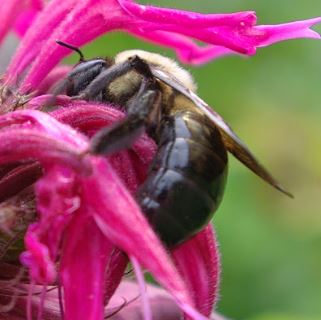Bees play a crucial role in our ecosystem as pollinators, helping to fertilize plants and ensure their reproduction. However, bee populations have been declining in recent years due to habitat loss and the use of pesticides. One way we can support bee populations is by planting native plants in our gardens and landscapes. Native plants provide bees with the food and habitat they need to thrive. In this blog post, we will explore the importance of bees and native plants, and how you can make a difference by incorporating them into your own green spaces.
Why are bees important?
Bees are not just important for producing honey. They are vital for the pollination of many of the fruits, vegetables, and nuts that make up a significant portion of our diet. In fact, it is estimated that bees are responsible for pollinating around 75% of the world's food crops. Without bees, our food system would be severely impacted, leading to decreased crop yields and potential food shortages.
What are native plants?
Native plants are those that have evolved in a specific region over thousands of years. They have adapted to the local climate, soil conditions, and wildlife, including bees. Native plants provide bees with a diverse and reliable source of nectar and pollen throughout the year. They also offer shelter and nesting sites for bees and other pollinators. By planting native plants, you are creating a sustainable and resilient habitat for bees to thrive.
Benefits of planting native plants for bees
Planting native plants in your garden or landscape has numerous benefits for bees:
- Food source: Native plants provide bees with a diverse and abundant source of nectar and pollen, ensuring they have enough food to survive and reproduce.
- Habitat: Native plants offer bees a safe place to nest and raise their young. They provide shelter from predators and harsh weather conditions.
- Biodiversity: Native plants support a wide range of other wildlife, including butterflies, birds, and beneficial insects. By creating a native plant garden, you are promoting biodiversity and creating a balanced ecosystem.
- Water conservation: Native plants are adapted to the local climate and require less water than non-native plants. By planting native, you can conserve water and reduce your environmental impact.

Leave a comment